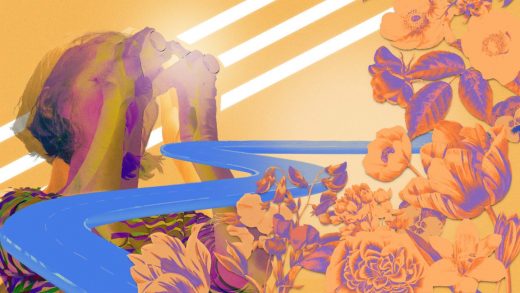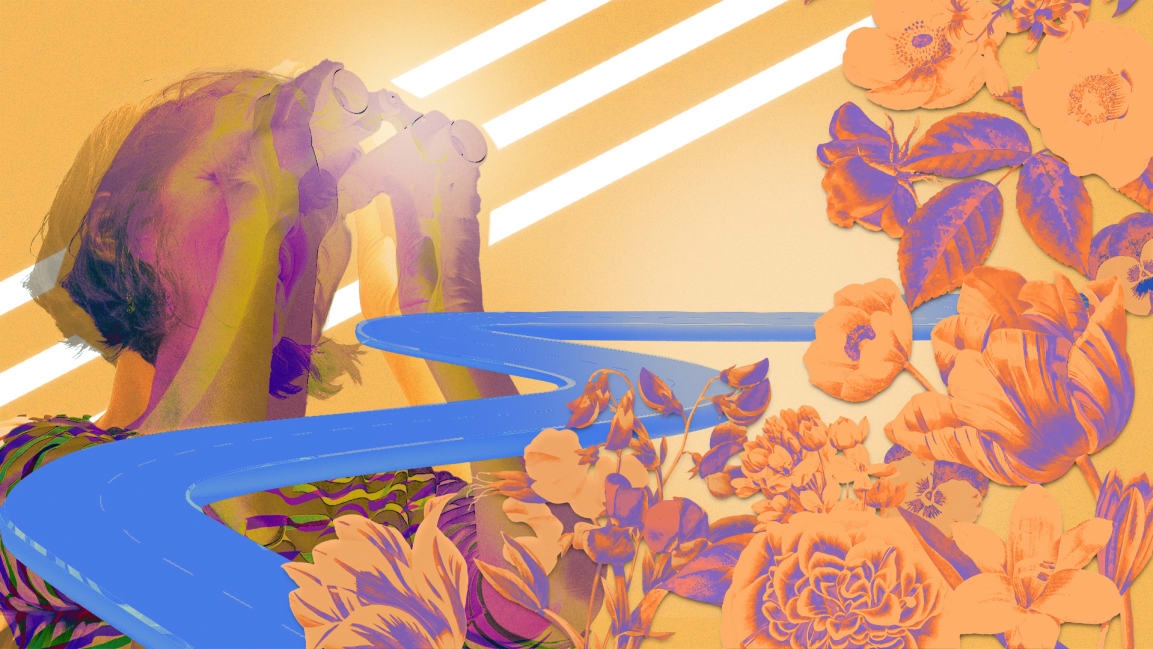The joy, humility—and beauty—of a lifetime of new beginnings
At 28, I was older than most of the other students in beauty school when classes started. A few girls had just graduated high school, others already worked in salons. And then there were a few like me, people looking for a different way to make a living. I tried being an actor in New York City for eight years, to no avail. I found myself stuck in the dream machine, feeding money to the shady industry that dangled vague promises of success in front of hopeful actors like a carrot.
The first day, we received our kits—two mannequin heads, a set of plastic rollers, cheap scissors, a comb, a brush, and a jar of Queen Helene green gel. There was a smock with the school acronym, LIBS, and a cutting cape—everything a beginner at beauty school might need. The teacher, Ms. Evalyn, said in her Staten Island accent: “If you finish this course you’ll never be without five dollars in your pocket.” To this day, I’ve found this to be true. I finished the course. I earned my license. And I don’t think I’ve ever been without enough scratch to buy myself, or someone else, a cup of coffee.
Learning how to learn
I didn’t feel it at the time as I suffered through getting lost in a haircut on the school’s salon floor or lumbering through a poodle perm, but taking the chance on beauty school not only changed the trajectory of my life. It allowed me the space to be as uncomfortable and bad as I needed to be as I embarked on learning a skill I had no talent for and no earthly idea of how to even start. But it did present the tools I needed to learn how to learn. Each new step launched a new challenge and with each new challenge, I found myself a perpetual beginner again, caught in an endless loop of pushing forward and circling back. Every long journey was comprised of a series of mini-journeys reliant on my willingness to listen not only to my human teachers, but also the materials I was working with, who were the real teachers.
The benefits of the beginner’s mind are well documented. The absence of expectation is a boon to the human experience, an open mind is key. But aside from all that, being a perpetual beginner has other benefits as well. A life of learning keeps things fresh. The connections between disparate ideas and skills become apparent. And when a hopeful beginning ends in abject failure, as it did when I earned my motorcycle license, despite driving a scooter into a ditch, one not only learns about the benefits of failure, but that a whole new beginning lies in wait.
Some beginnings are simple. Learning to bake bread. Hiking Maine mountains. Reading a book in a genre you’ve never read before. Some are more complex. Adopting a pet. Learning to drive. Getting married. Starting a new profession. And other new beginnings are thrust upon us—the times in life when a person doesn’t choose the beginner’s path, the path chooses them. The new experience of having a child, for instance. Or ushering a loved one into death—the sort of new beginning that occurs when something else ends. What if the practice of beginning and of learning is also practice of humility? What if living life as a perpetual beginner teaches us to weather the hardest beginnings with a little grace, a little kindness, and maybe, even within the pain of loss, a tiny, perhaps nearly invisible, glimmer of hope?
It might not seem logical but stepping into LIBS that first day of classes released a chain of events, beginnings, endings, and middles that forked like rivers or cracks in glass. It led me to working backstage on Broadway, a whole new world that I explored for over 15 years. Working in theater is one of the very few places where working on a different job every year is an asset as opposed to a liability. Every new show was a new, new beginning and required new ways of thinking, new strategies, new experiments, and new subtle and surprising teachers. I suspect this practice and profession of beginnings and endings led me to graduate school, which led me to writing a book, which led me here, writing this article, another new beginning, for I’ve never written on being a perpetual beginner before.
Ms. Evelyn knew the score as she led us through unpacking our kits, counting our rollers, and setting up our mannequin heads that first day. In my memory, she had a slightly mischievous quirk at the corner of her mouth as she watched us struggle to comb our mannequins’ knotted hair. None of us were good. All of us were beginners. This moment, she knew, would be the beginning of things we never saw coming.
This New Year, dare to become a perpetual beginner. Learn a new skill, start a new hobby, pick back up the instrument you played in high school. It doesn’t matter if you’re good at it. You’ll become a better listener…with a more open-mind…who isn’t afraid of failure. And with those evolutions, you live and see a brighter life.
Fiction author and screenwriter Amy Neswald was awarded the New American Fiction Prize for her debut novel-in-stories, I Know You Love Me, Too (New American Press, October 2021). Her screenplay, The Placeholder, was awarded a best screenplay award at the Rhode Island Film Festival in 2008. She alsoteaches creative writing at the University of Maine and continues plugging away at her animated short films about monster children.
Fast Company , Read Full Story
(20)



